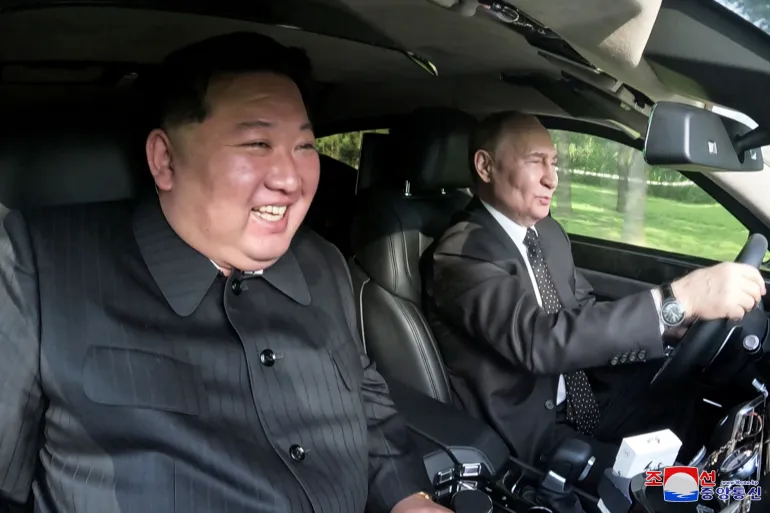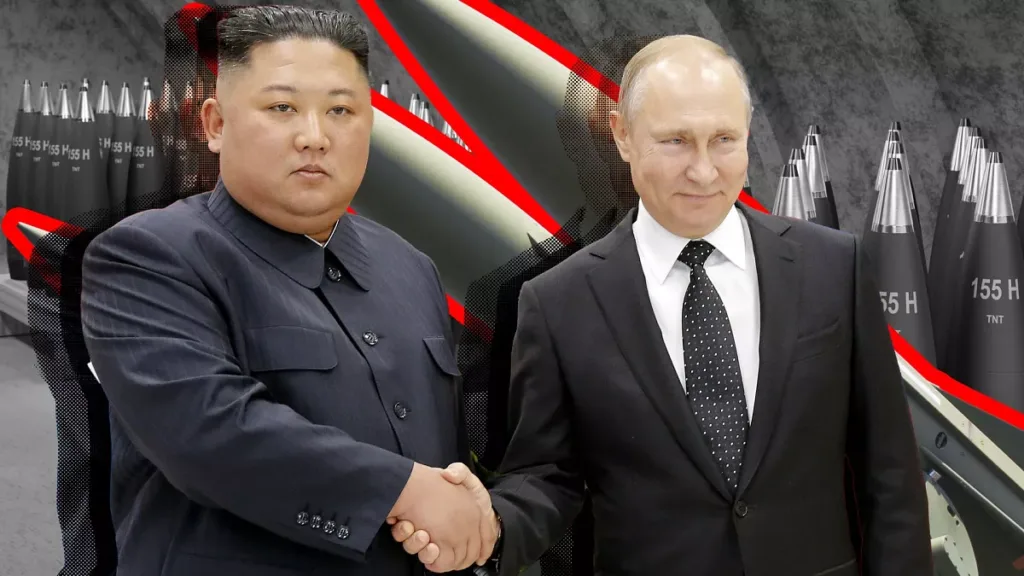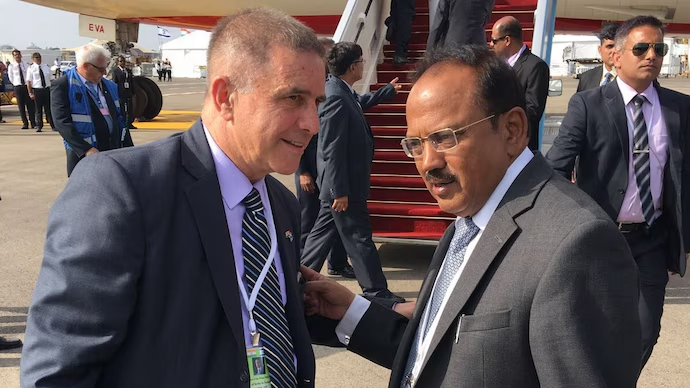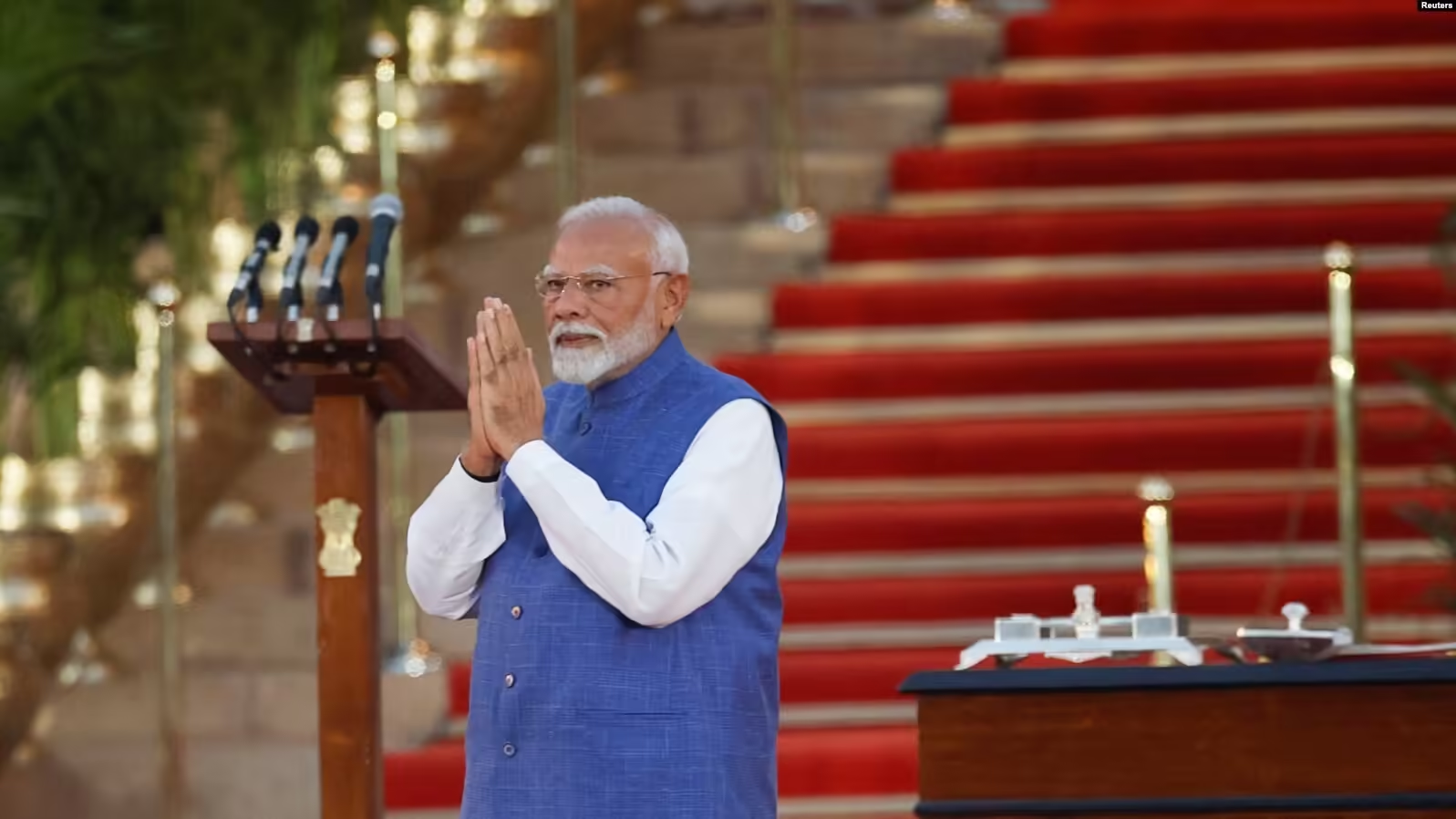In a move that has sent ripples through the international community, Russian President Vladimir Putin recently drove North Korean leader Kim Jong Un in a Russian-built Aurus limousine. This symbolic gesture is more than a simple display of camaraderie; it marks a significant shift in world politics and poses a considerable challenge for the United States and its allies.
Strengthening Bilateral Ties
The viral video of Putin driving Kim highlights the burgeoning relationship between Russia and North Korea. Released by Russian state TV, the footage shows Putin behind the wheel of his official presidential car, with Kim seated beside him. The two leaders are seen chatting and laughing as they navigate through a manicured park, signifying the close rapport they have developed.

This interaction is not an isolated incident. Reports indicate that Putin gifted Kim a Russian-built limousine in February and has now given him another. Kim, known for his love of luxury cars, now possesses at least two Aurus limousines. This exchange of high-value gifts underscores the deepening ties between the two nations.
Historical Context and Strategic Implications
The relationship between Russia and North Korea has historical roots, but the current geopolitical landscape adds new dimensions to their alliance. During the Cold War, the Soviet Union was a crucial ally of North Korea, providing economic and military support. After the dissolution of the Soviet Union, the relationship waned but never completely dissipated.
In recent years, both countries have found common ground in their opposition to the Western-led international order. Russia, under Putin, has been increasingly assertive in challenging Western influence, particularly in regions like Eastern Europe and the Middle East. North Korea, under Kim, continues to defy international norms with its nuclear weapons program and human rights record.

This renewed camaraderie presents a strategic challenge for the United States and its allies. The strengthening of Russia-North Korea ties could potentially alter the balance of power in East Asia and beyond. For instance, increased military cooperation between the two could complicate efforts to denuclearize the Korean Peninsula and ensure regional stability.
Economic and Military Cooperation
The deepening relationship between Russia and North Korea is not limited to diplomatic gestures. According to reports, the two leaders signed an agreement to enhance military cooperation, including a mutual defense pledge. This agreement, referred to by Kim as an “alliance,” signals a significant shift in the geopolitical landscape.
For the United States and its allies, this poses a direct challenge. The possibility of a militarily strengthened North Korea, backed by Russian support, could destabilize the region. It also complicates efforts to enforce international sanctions aimed at curbing North Korea’s nuclear ambitions. Russia’s willingness to engage with North Korea despite these sanctions underscores its defiance of Western policies.
Impact on International Relations
The burgeoning Russia-North Korea relationship also has broader implications for international relations. It signals a potential shift in alliances and power dynamics. Countries that have traditionally aligned with the United States may need to reassess their positions in light of this new development.

For instance, South Korea and Japan, key U.S. allies in the region, may find themselves in a more precarious position. They must navigate the complex dynamics of a strengthened Russia-North Korea alliance while ensuring their security and economic interests. Similarly, China, another influential player in the region, will closely monitor this development, balancing its own strategic interests with its relationships with both North Korea and Russia.
Conclusion
The image of Putin driving Kim Jong Un in a Russian-built limousine is a potent symbol of the changing dynamics in world politics. This newfound camaraderie between Russia and North Korea poses a significant challenge for the United States and its allies. As these two nations deepen their economic, military, and diplomatic ties, the global balance of power could shift in unpredictable ways. For policymakers in Washington and other Western capitals, this development necessitates a reevaluation of strategies and alliances to address the emerging geopolitical realities.


